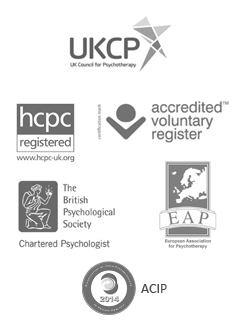Setting Boundaries with Abusive Father
Reader’s Question
I don’t know what to do anymore with my dad. When my parents divorced, I was 15 and I left with my dad. My whole life he always put me down, abused me in every way, manipulated me to believe anything, and even turned me against my mom. Everything he told me during the divorce turned out to be what he did, not her. So for 6 years I believed him, until I got with my husband and moved out at age 22. It turned out everything he said was a lie. He has changed me so badly that I can’t help but say sorry to anything, I blame myself for everything, I can’t take jokes no matter how small, I always put myself down, I always believe I have to do everything, and also I have to always please my father. It is now destroying my relationship with my husband. I have to call my father every day, see him once a week, and do anything he asks. I have tried so many times to end it but when he fights back, I’m not allowed to speak, he yells, fights, and even threatens to slap me. And every time I break down and back down to him. If I don’t do something soon I will lose my husband, son, everything I have. I don’t want to lose the first and only happiness in my life. He has destroyed me. I don’t know what to do and I need help.
Psychologist’s Reply
It sounds like you’ve been through some difficult years with your dad, but have also been able to gain perspective and notice the things that you don’t want to tolerate any longer. Moving out of his house seems like it was the first step to understanding his tactics as well as your own responses to them.
From your description, I get the sense that two things are happening:
- Your father is who he is, and it is doubtful that much of that will change.
- How you choose to respond to your father may give you more control in the relationship.
Sometimes, people feel powerless and trapped in the pattern of how they respond to others — especially parents. In these instances, it can be helpful to think about the amount of emotional and physical distance from your father that you might be able to tolerate. I noticed a lot of “have to’s” in your description, but I’m unsure what the consequences are if you don’t acquiesce. It sounds as if there are threats of abuse when and if you engage with him — and if someone is emotionally and physically abusive, there isn’t a healthy way to keep in contact with that individual until the abuse stops.
I’m wondering what keeps you connected to your father — is it out of obligation, the false hope of getting recognition from him, or something else? If he is willing to acknowledge and cease the abuse, I’m wondering if there is a way to set firmer boundaries without “ending it” with him — the fear of you cutting him off may be driving some of this behavior as well.
The first step I would recommend for anyone in a situation like this is to sit down and write out a schedule that would work and feel safe for you in terms of communicating with your father. Putting aside his demands and needs, if it were up to you, how often would you want to check in with him on the phone? How often would you want to see him? Would you want any contact at all with him after the way he’s treated you?
Once you have a better idea of what your needs are in the relationship (and have decided whether you want to have a relationship with him at all), it may be helpful for the two of you to sit down with a neutral third party (such as a licensed psychologist or licensed therapist) to find ways to communicate these boundaries with him in a way he can hear. It can be helpful to start with something like “Dad, I love you and want you to be part of our lives, but I have my own family that I have to put first sometimes. Can we find a way to meet someplace in the middle?” Another approach might be just to begin ignoring his calls and bids, and answering or agreeing to them only when you have the time and energy for them (and for him). You have every right to set limits on your own time and energy: they belong to you. If he yells and screams, you have the right to calmly leave or hang up the phone. In this approach, it is important for you to make a conscious effort to reach out to him — especially when you are both in a calm, neutral state. Trying to make changes when flooded with anger or frustration will only escalate the problems that already exist between you.
It can be very difficult to set boundaries with parents, or with others in our lives who pull for us to pay attention to them. Your anger toward your father is valid; it’s finding a way to effectively communicate that anger and set your own boundaries that is difficult. Talking to a licensed mental health provider may be most helpful for you given the pain you’ve experienced. I would also suggest reading Harriet Lerner’s Dance of Anger [Amazon-US | Amazon-UK] as another resource in figuring out how to express your feelings clearly while navigating this difficult relationship.
Please read our Important Disclaimer.
All copyrights for this article are reserved to ask a therapist



Recent Comments